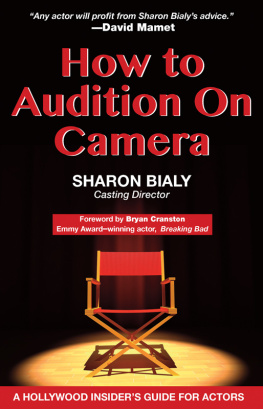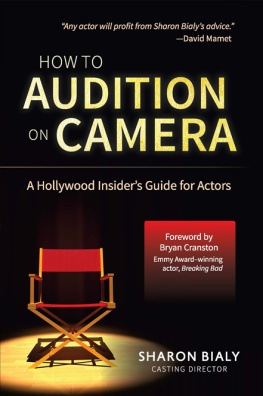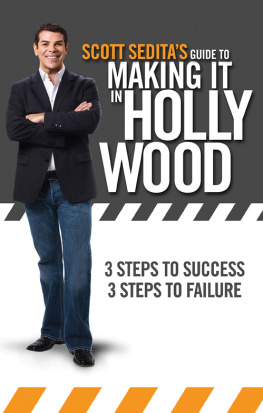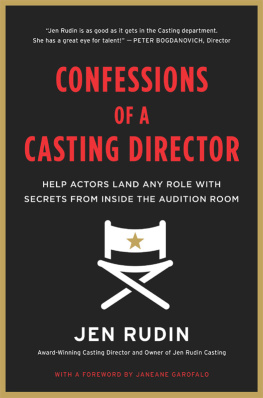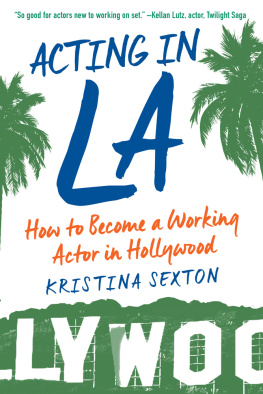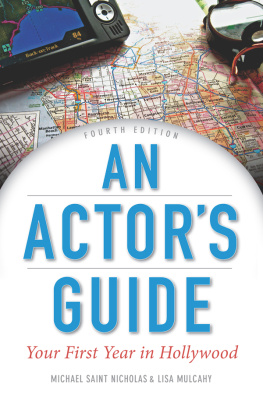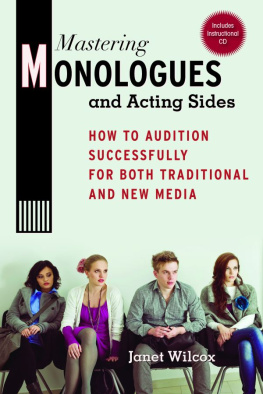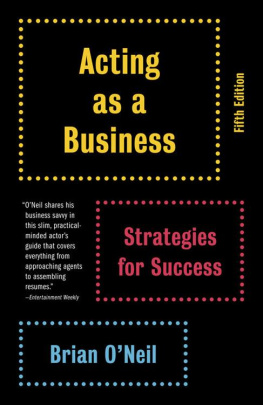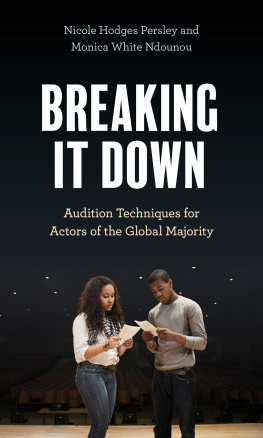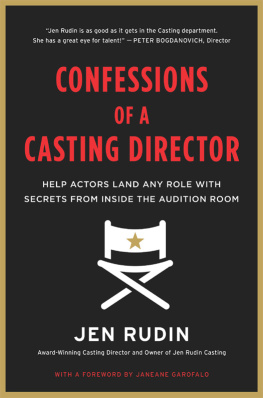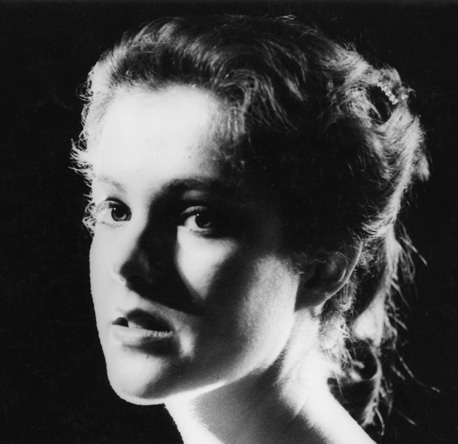Now You Tell Me! 12 Actors Give the Best Advice They Never Got
Copyright 2012 Sharon Scott
Cover Design Christian Fuenfhausen
Book design 1106 Designs
Digital Conversion Alliteration Ink
All rights reserved. No part of this publication may be reproduced, stored in a retrieval system, or transmitted in any form or by any means, electronic, mechanical, photocopying, recording, or otherwise, without the written permission of the publisher. Now You Tell Me! is a trademark of Sharon Scott.
Arundel Publishing
P.O. Box 377 Warwick, NY 10990
www.arundelpublishing.com
www.nowyoutellmebooks.com
ISBN 978-1-933608-25-9
eISBN ePub 978-1-933608-28-0
eISBN Kindle 978-1-933608-27-3
First Edition April 2012
Printed in the United States of America.
TABLE OF CONTENTS
LYNN REDGRAVE
Make Things Happen
Lynn Redgraves extraordinary career spanned five decades and four continents. She starred on Londons West End and on Broadway, in film and television, and worked for directors from Laurence Olivier, Franco Zeffirelli, and Nol Coward to James Ivory and Bill Condon.
Ms. Redgrave had two Oscar nominations, thirty years apart, for her roles in the films Georgy Girl and Gods and Monsters. She won two Golden Grit Award, and a New York Film Critics Circle Award, and was nominated for two Screen Actors Guild Awards as well as an Emmy for her situation comedy, House Calls. A member of the distinguished Redgrave clan of actors, she was also a successful playwright.
MAKING A LIVING
AUDITIONS
Some people recommend showing up looking as near to the role as possibleif youre going for the housekeeper, dont turn up in your Chanel suitand that is probably good advice. Although I remember my father [Sir Michael Redgrave] telling me back in the old days that he was sitting in on some auditions being held at the Old Vic, where he was already a member of the company. Suddenly, they heard a terrible clanking noise from offstage. This young woman had hired real armor and clanked on to audition and could barely move! He used that as an example of taking it a step too far.
When I was still in drama school, I heard about an audition for A Midsummer Nights Dream directed by Tony Richardson. I decided to go to the audition, thinking, Why not? Either Ill get the partthough not likelyor Ill get valuable practice. And I ended up being offered the role of Helena. Taking it would mean I would have to leave drama school a semester earlyto the absolute horror of the principal of the school. He told me, You cant possibly do this! and he proceeded to name a couple of people at the drama school who if they were the ones [to leave early], then that would be finebut not me. That made me so cross, I took the part at once.
I did an audition for my second film, Girl with Green Eyes, which I did before Georgy Girl. The film was based on a novel by Edna OBrien, an Irish writer. When I got to the theater, it was wall-to-wall Aran sweaters and Irish accentswhat chance did I have? I became incredibly nervous. When it was my turn, I got up; and even as I was auditioning, I thought, This is absolutely dreadful! Then, lo and behold, I got a callback. So my thinking turned around: I must have been quite good! I went back, this time with a lot of confidence, and did my audition again for the director of the theater and the producer. After I auditioned they said, We called you back because weve seen you onstage at the National Theatre and you were wonderfulbut when you did your audition, you were so bad that we thought we had to give you another chance! Now, the odds of that happeninggetting called back because you were so badare, in reality, nonexistent! To me, this always illustrated the importance of having confidence when you audition.
Ive heard directors say that during auditions they can tell if someone is a possibility within the first couple of minutes. When I sat in on auditions for a play Id written called The Mandrake Root, I found that to be true. I knew right away if a person made me sit up and look, if he or she demanded your attention. Im inclined to think that one should make a bold step at what one thinks the character should bebut Ive heard people say no, because the director might be looking for another sort of performance. I still say, go for it.
To tell you the truth, I am incredibly relieved that I dont need to audition anymore before being offered a part. Im shocked at some of my colleagues who are made to audition even when they have an amazing body of work that the people must have seen. And I admire todays actors who look on every audition as an opportunity to act.
KEEPING IT FRESH
The best advice I got about keeping your stage performance fresh was from my father. He did many long runs and short runs; and every performance, hed choose a point in the play when he had to make an entrance, and hed invent a different set of circumstances that led him to the door. The circumstances would be in keeping with the play, and hed do the scene the way it was meant to be, but just by changing one incident, it shakes up your thinking and gives you a new way into the material. For example, you can decide that you came by public transport and now youre late. Or it was raining outside. Or you had a difficult phone call before arriving. Nothing that will change it completely for your fellow actors but something that changes it just enough to make it fresh for you.
The truth is, every performance is different because the audience is a different animal every single night. The play can never be the same because the makeup of the audiences, and the energy coming from the audience, is never the same. Will they laugh at the same time? Will they react the same way to the serious parts?
If youre doing a well-written role in a substantial play, you should never think you are done, no matter the length of the run.
A lot of actors do feel that. Perhaps one culprit is working somewhere like Williamstown Theatre, or weekly rep in England. They do some great stuff, but they cram that rehearsal period. Youre lucky if its three weeks and youre doing Chekhov. Then youre done after four or five weeks. The shows over, and you go on to the next. The problem with the shortcut is that people could get into the habit of taking on very short runs, which takes away the whole development process. Then suddenly, you come to a show that has three, six, or even nine months of a run, but youre used to three or four weeks and youre done. So now the actors are counting the days because theyre bored. When you come to that pointor the point where you think youre done developing a rolethats the point at which you rethink!
I came to a very difficult juncture when I was doing St. Joan for Circle in the Square for rather the opposite reason. I had done the part before at the Goodman in Chicago. After two sets of rehearsals and countless performances, I reached a point in the pivotal trial scene when I was played out and thought I didnt know where to go. I was stuck, and it felt terrible. There was one performance when I felt I wasnt there. It was awfulbut it caused me to remember that there is never an end to exploration. The trial scene is terrifying; and if I was stuck there, I had to back up and rethink how I approached the scenes leading up to it; in fact, I rethought how I was preparing for the whole role.
LOSING YOUR NERVE
Worst of all for an actor is losing your nerve. It happened to me back in 1975 when I toured with some one-act plays by Michael Frayn called The Two of Us. We had done really well on the tour, had gotten good reviews, and had good audiences. Then we got invited to go out to Los Angeles for a brief run.
Next page

